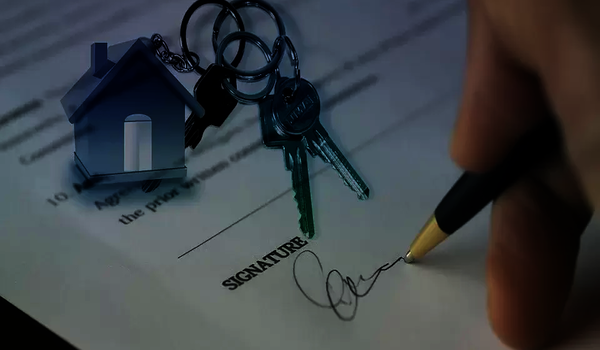
What can you do to safeguard your credit if your ex was awarded the marital home during divorce?
I can understand why this is concerning you; a divorce is a stressful experience all by itself. That stress is compounded by the challenge of separating your finances and joint accounts — not to mention all the unknowns about the future.
So, let’s focus on the mortgage. There are a few well-known ways of tackling this issue.
Things You Should Know About Splitting the Mortgage/Marital Home During Divorce
Paying Off the House/Mortgage in Full
In my experience, this option is not commonly used, since there is often not enough money left to pay the mortgage in full after the marital assets are split.
Selling the Home
This can be simple or difficult, depending on a number of variables. One potential challenge is that selling a home can take a lot of time. But if you and your ex agree on this option, it can offer a viable solution. By selling the marital home during divorce and paying off the existing mortgage (or mortgages) you can both move forward without that joint obligation. Your credit will potentially be unaffected by your ex’s future actions, at least with regard to the mortgage.
Have Your Ex Refinance the Mortgage
The new mortgage loan would be in your ex’s name only (assuming that he or she qualifies). The old mortgage is paid off and closed. You are no longer obligated under the old loan agreement. Your credit report should show the mortgage as paid in full with a zero balance and no monthly payment owed going forward.
Now, let’s take a look at some lesser-known ways of dealing with this mortgage issue with your ex.
To Assume, or Not to Assume
Many mortgages are assumable. You’ll need to confirm whether or not yours is. Some common mortgage loans that may have an assumable option include FHA, VA and USDA loans (you can view the USDA home loan requirements at https://www.usdaloans.com/program/eligibility/).
If the mortgage in question is assumable, then you can follow a process similar to having your ex refinance out of the existing mortgage. But the cost will usually be lower. Your ex would still need to qualify for the mortgage on his or her own. Another potential benefit is that the interest rate and terms may be better than what is available on the open market.
Now, for what is probably the least known option: a Qualified Mortgage Assumption.
If you haven’t heard of this before, that’s not surprising. The reason is that loan officers don’t make much — if any — money on it, so they’re less likely to suggest it as an option.
The process can go like this: Your ex contacts the mortgage lender and informs them that he or she would like to take over sole responsibility of repaying the loan. In this scenario, your ex qualifies for the loan assumption and takes full responsibility for the mortgage. You are removed from the note and are no longer obligated for it. So, should your ex-spouse miss a payment, or worse, your credit should be safe going forward.
A Few Last Points
Many lenders won’t allow for a qualified loan assumption. If you do obtain one, you should expect some processing and/or administration fees ranging from $400 to $800, as well as the possibility of a half-point to one point of the loan amount (a point is equal to 1 percent; so, one point on a loan amount of $200,000 would add $2,000 to your costs).
Lastly, lenders generally will execute a release of liability to the other spouse so make sure to ask for a copy of the release of liability. This should clearly eliminate your obligation to repay the mortgage, regardless of what your ex-spouse does or doesn’t do.
Credit Reporting Expert Witness, Doug Minor, is the President of Easy Credit Relief Inc. a Consumer Education company. He is a writer, teacher and speaker. Doug has been FCRA certified by the credit industry’s trade association as well as being a Certified FICO® Professional on credit scores and a Certified Divorce Planning Professional. www.creditdamagesexpert.com











Add A Comment